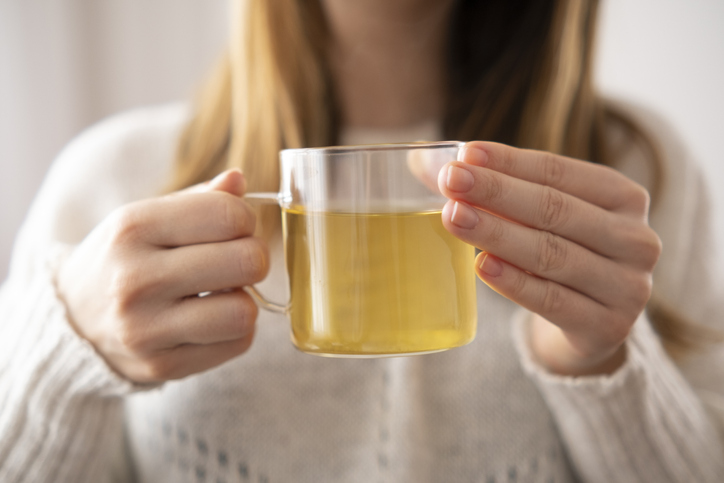4 Ways That Green Tea Can Help Weight Loss
Progesterone helps weight loss as it rids the body of excess fluid, but one fluid you do want to increase is green tea.

There have been many claims as to the benefit of green tea in helping lose weight, but until now it has not been clear just exactly how it can do this.
Researchers have spent years evaluating the link between weight loss and a chemical in green tea called epigallocatechin-3-gallate, or EGCG, to see if it actually does help promote weight loss.
How EGCG helps weight loss
It does so in four ways and there is an explanation for each of them:
1. Increasing the rate of fat oxidation and promoting thermogenesis
2. Inhibits breakdown of norepinephrine to help control appetite
3. Spurs weight loss even without dietary changes
4. Prevents fat cells from increasing their fat capacity
1. ECGC is a catechin, a type of antioxidant that is found predominantly in tea, but also in smaller amounts in red wine and chocolate.
We know that antioxidants can help decrease the harmful effects of oxidative stress, a process associated with premature aging and cell breakdown, but EGCG is an antioxidant that has a lot more than that to offer.
2. It helps promote fat loss by increasing the rate at which the body burns fat.
Although researchers aren’t completely sure how it does that, it appears to speed up thermogenesis, a process that uses calories to generate heat.
3. It also helps to stop you feeling hungry as EGCG prevents the breakdown of a neurotransmitter called norepinephrine, which plays an important role in weight management.
Norepinephrine works by signalling the brain that you’re full and so when levels are low, the body feels hungry and you reach for a snack, or a bigger meal.
EGCG helps keep norepinephrine from degrading too quickly, which means you’ll feel fuller longer and that helps you control your appetite.
4. EGCG also appears to prevent fat cells from taking in more fat and that’s important because after puberty, the number of fat cells we have stays fairly stable.
So that doesn’t mean you can’t gain weight because clearly we do so, but that is because our fat cells are expanding to hold more fat.
If you can slow each cell’s ability to increase its fat stores, then your weight gain can be more easily controlled.
Does caffeine make a difference?
Many diets have focused on drinking black coffee in the belief that caffeine helps weight loss and not ECGC.
However a study published in the American Journal of Clinical Nutrition compared the effects of EGCG and caffeine in two groups of mice, one that received green tea extract and one that received caffeine.
The results favoured the green tea as, although it does contain caffeine, the mice that received the extract had significantly greater fat oxidation rates than those that received only caffeine.
This shows that the fat-oxidative effects of green tea have nothing to do with the tea’s caffeine levels, but if you are sensitive to caffeine then use decaffeinated green tea instead.
The role of hormone balance
Women do naturally put on weight at menopause as the body shifts production of oestrogen from the ovaries into the fat cells. Also oestrogen dominance is usually an important factor, along with fluid retention.
Getting your hormones in balance will help not only your weight but your heart health and blood pressure levels too. Oestrogen adversely affects cell membranes, resulting in sodium and water influx into cells, and this is what causes water retention as well as loss of potassium and magnesium.
Progesterone deficiency is usually behind this and when supplemental bioidentical progesterone is used the weight usually goes down as this excess water is excreted and blood pressure is helped to return to normal.
Helpful information:
if you are still struggling with what would be the best, or worst things to drink to help you lose weight then the following article can certainly help you with that.
https://anna.blog.wellsprings-health.com/best-and-worst-drinks-for-losing-weight/



















